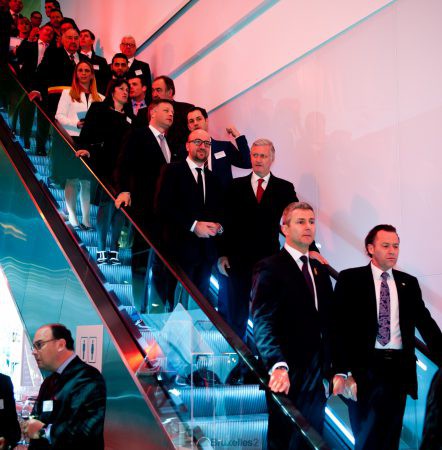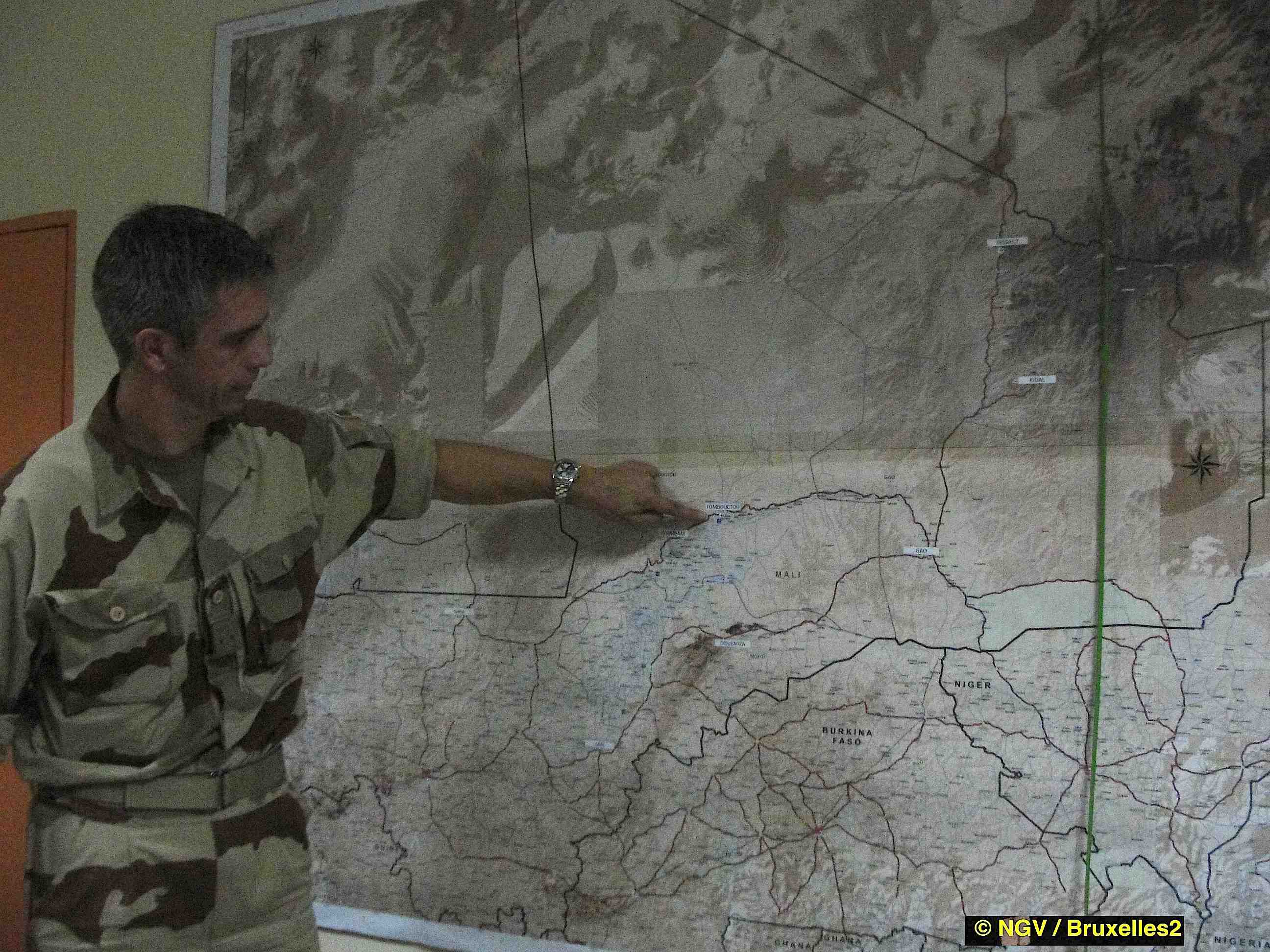When a government messes up, Brussels takes the plunge

(BRUSSELS2) Both the Belgian government and the Brussels region are toiling away today trying to restore the image of Brussels, of Belgium, to attract tourists and businessmen to the Belgian capital... Suffice to say that it It's a difficult mission. We can love Brussels, its atmosphere, its inhabitants... it must be recognized that for several six months, from November to April, certain political leaders with risky decisions, worthy of a certain political amateurism, did much more to tarnish his image that no attack. Like arsonist firefighters, they have, on several occasions, poured oil on the fire, instead of using extinguishers. Worse, they fell head first into the trap set by the terrorists.
The principle of the blast effect
The principle of a "classic" terrorist act is, in fact, to have an impact in two stages. First of all, the act itself, brutal, bloody, designed to surprise and hurt, but which remains limited in itself compared to an act of bombardment or war (1). Then, the blast effect which lasts for a longer or shorter time, whose intensity is not identical, but whose effects can be just as serious in the long term as the act itself, resulting in a noticeable imbalance. This is what happened in Belgium. The taking of siderative measures, out of the ordinary, resulted in this economic disorganization, and contributed to this effect of breath. If Belgium has not fallen, it is primarily thanks to its population, its natural resilience, its economic fabric rather than the decisions of a government on the verge of panic...
1st mistake: the lockdown after the Paris attacks in November
After the attacks of November 13 at the Bataclan and the Stade de France, the risk in Brussels is proven. The perpetrators of the attacks are "Brussels residents". You have to actively seek them out. In the absence of other means available, in terms of police forces, the decision was taken to freeze all activity in Brussels. Normally, this measure does not last more than 12 or 24 hours, the time to adapt. Here, it lasts 5 days. This lockdown – an extraordinary measure that no country in Europe has taken following direct attacks – will then produce chain effects that will be difficult to recover from. The decline in tourist attractiveness which subsequently hit Brussels and which it still suffers is the direct consequence of this. (Read : Brussels lockdown crisis management: total and surreal improvisation).
2nd error: the deployment of the military in the street, in numbers, and in the most conspicuous way
In the wake of this lockdown, soldiers are deployed in the city, armed to the teeth (with weapons not quite suitable for use in high-density areas), traveling in vehicles that are totally inappropriate in urban areas, that we would see more in Iraq or Afghanistan, when the risk is really "minor" (we are not dealing with improvised explosive devices placed at all crossroads) but with good old explosive bombs or even Kalashnikov shots. Even in Paris, France, where however we love to show the muscles, government policy has been much "more moderate, preferring to drive the military to their patrol points in "white" vehicles rather than wholesale half tracks This deployment in force will not prevent the continuation...
3rd error: the blocking of transport after the attacks of March 22 in Brussels
Here again, the soldiers are deployed in large numbers and in disorder. The entire metro is closed for several days. And we are reopening the stations bit by bit with strong controls at the entrances so drastic that they make life impossible for all the ordinary people. Absolutely exceptional measure. For having experienced such a situation after the attack on the RER Saint Michel, on July 25, 1995, I do not remember such a "stop". On the contrary (2).
In fact of control, those turn short, a few days later. The military do not control anything. And besides, they don't have the power (article to follow). You can enter the metro with a well-loaded backpack without any interception... The soldiers take a (deserved) rest with a sandwich... There is simply no one to relieve them. Brussels National Airport (Zaventem) closed for several days to recover and repair the damage reopens in a great mess feeling. Here again, the drastic controls are finally lightened in the face of the outcry of the economic authorities in particular. Not really the kind of measure that builds respect. It will take almost a month for the airport to return to normal.
4th error: the time of uncontrolled skids
Not content with this total improvisation, the government very quickly sank into an infantile regression of the type: "it's not me, it's him". There is no longer even need for opposition to sow the thread of discord. The controversy comes from within. The government believes that it had ordered the STIB (Brussels public transport) to close the metro. STIB assures that it never received the order in time. A rather sterile controversy when we know that this would not necessarily have avoided the attacks and the victims (read: Brussels attacks: should the metro be stopped? A theoretical question). Then we vilify a (poor) federal policeman stationed in Turkey and accuse him by name of having made a mistake in his files. It's rare and relatively unfair. The role of a minister is to assume, even the mistakes of his subordinates (assuming that there were any in this case). The eruption of neo-Nazi hooligans on the Place de la Bourse on 27 March, in full tribute to the victims (see Huffington Post) will complete the demonstration of the government's inability to ensure a minimum of order.
5th mistake: forgetting a basic rule
In the event of a terrorist act, what matters is to very quickly get life back to normal, as usual, even if the heart is not there and the wounds are gaping, to live as usual and above all not to give in to panic. This is a basic principle adopted by all cities hit by terrorism. In Paris 1986, 1995 and 2016, in Madrid 2004, in London 2005, all followed more or less this same model. Sometimes by reinforcing security measures to the extreme (state of emergency type), they have always taken care to leave all public transport, shops and public places open and by "fluidifying" population movements. Brussels has escaped this "unwritten rule". She pays the price...
A succession of errors which is paid
Such a succession of errors is paid cash on the economic situation. Do not hope that this deleterious atmosphere does not produce effects. The Grand Place and surroundings were almost deserted during the month of May, where it is usually crowded. The Belgian government led by Charles Michel has committed, in this case, a sin of pride, too much self-confidence, a notorious lack of preparation at the political level and a misunderstanding of the spirit of the fight against terrorism.
Since the attacks on the Jewish museum in Brussels in May 2014, the Belgian authorities have known that they are a target. The perpetrator of the act is not quite an isolated "wolf" as it has been interpreted... The neutralization of the Verviers cell in January 2015 is a new signal. All specialists now know this. Brussels will be, one moment targeted. The only questions are: when, where and how. Not having drawn the consequences of these alerts in terms of governmental organization, crisis management method is quite incomprehensible...
(Nicolas Gros-Verheyde)
(1) The attacks in New York in 2001 are an exception in this "limited" character. The act of terrorism, in my opinion, must be clearly distinguished from the act of war, even if they sometimes overlap and politicians like to confuse them.
(2) RER traffic will be restored the following day. Watch the log of France 2 July 26, 1995 (source INA)

